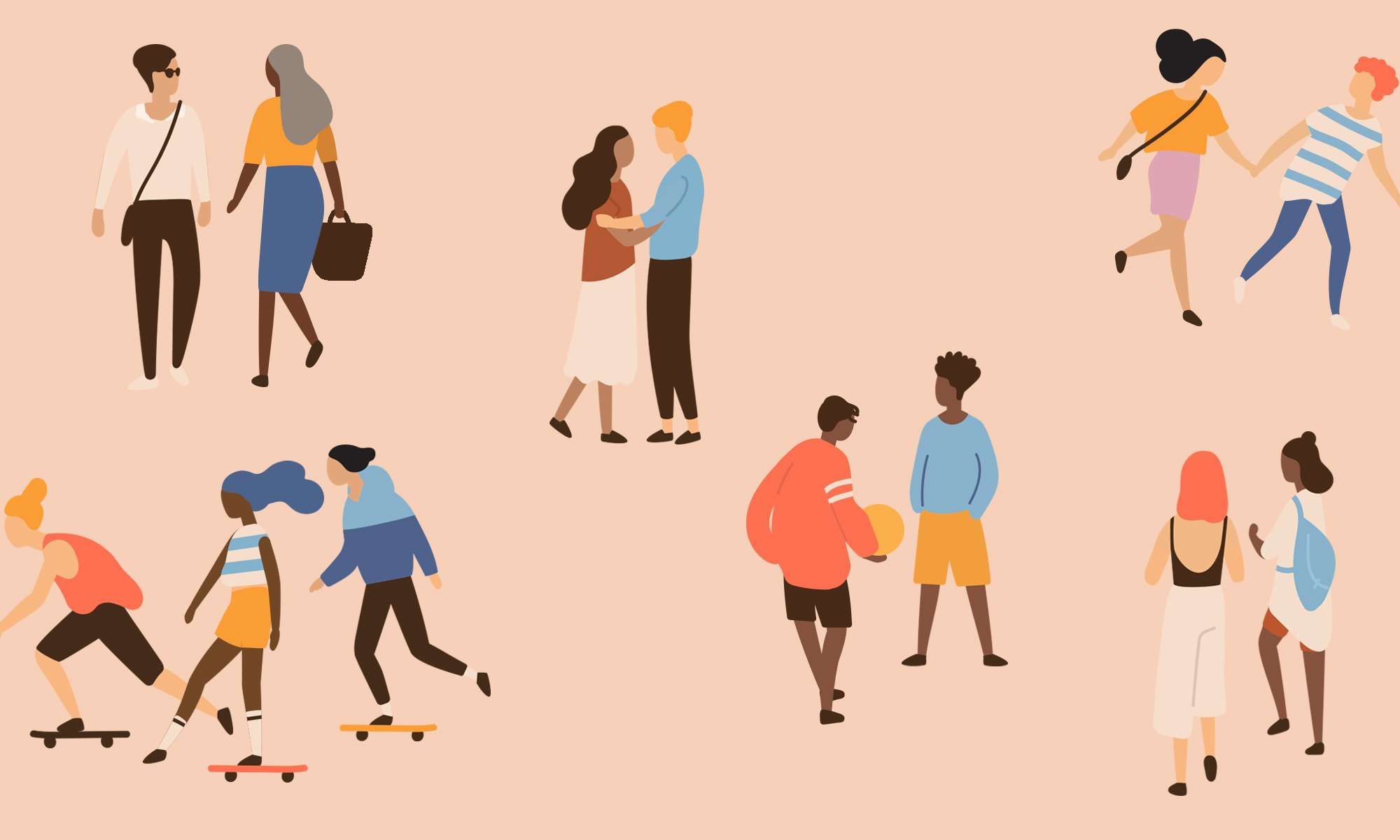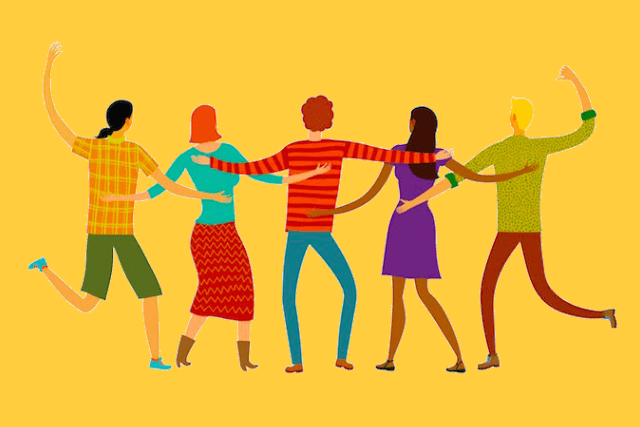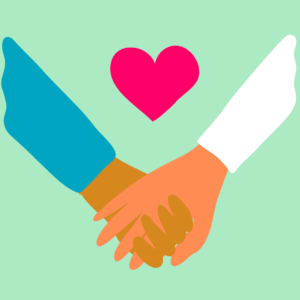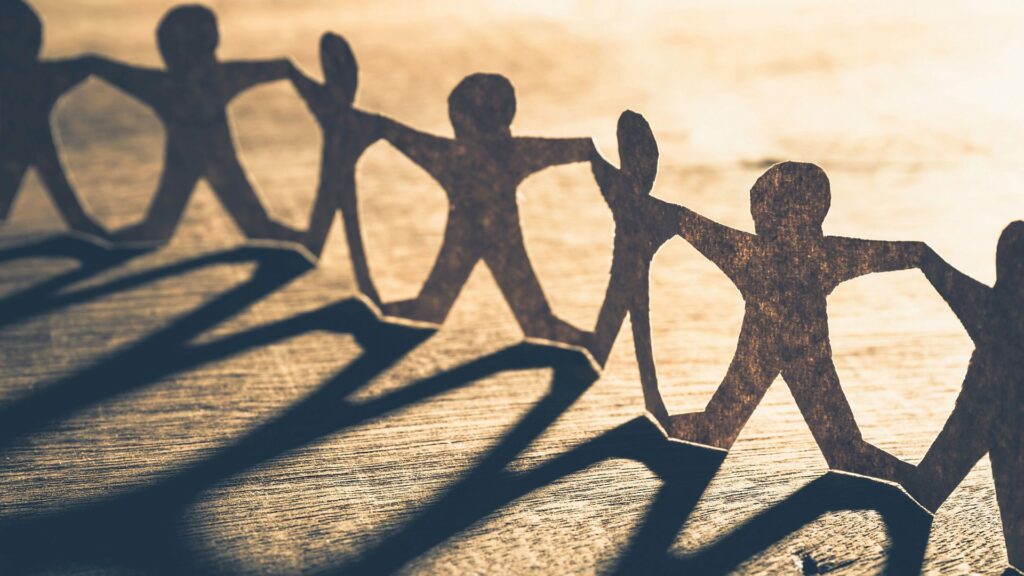The relationship is everything in life. It gives us a sense of belonging and purpose. A relationship can be with anyone – our parents, siblings, friends, spouse, or children. In this blog post, we will explore all aspects of the relationship. What it is, how to build a healthy one, how to sustain it, and more! We will also hear from relationship experts and learn about the latest research on relationships. So whether you are single or in a relationship, this post is for you!
Contents
Understanding Relationship

A relationship is a connection or association between two or more people. It can be romantic, platonic, familial, friendly, or professional. A healthy relationship is supportive and satisfying for both parties involved.
Signs of a Healthy Relationship
Here are some signs that experts say indicate a healthy relationship.
Commitment
Both partners are committed to the relationship: This means that they want to make things work even when times get tough. Because they’ve made up their minds that this is what they want for themselves. No one should feel pressured or forced into staying with someone else. Just so it doesn’t seem like a waste of time if things don’t work out long term (which happens).
Both parties are willing to compromise: This means that both people are willing to make sacrifices to keep things going smoothly between them without resentment or bitterness building up over time. An example might be if one person wanted more alone time than the other, but they agree on seeing each other once a week instead of twice. Because they know it’s important for their partner too!
Feelings
You feel accepted and loved: You feel good about yourself when you’re around the person and don’t constantly put up a front because you want them to like you. They make you feel accepted and loved for who you are, faults and all.
Both parties feel appreciated by the other: It’s important to feel valued in a relationship and know that your partner is grateful for having you in their life. This includes little things like doing something special for no reason or telling them how much you appreciate them.
You feel safe with the person: You should never have to worry about being abused or physically hurt in any way when you’re around someone. Because that’s not normal behavior. The other person also makes sure this doesn’t happen by keeping their hands/feet off of your body unless invited otherwise (e.g., tickling).
Dynamics
You share similar values: This means that you have a similar outlook on life. And can agree to disagree when it comes down to certain topics like religion, politics, etc.
You have freedom and independence: Neither of them has control over what the other does or says. Both people should feel comfortable expressing themselves without fear that it will change how their partner feels about them negatively. Your own opinions matter too!
You communicate well with each other: Both people in the relationship need to talk about what they want from their partner as well as how things are going between them so that nothing gets swept under the rug. This also includes listening to what the other person has to say and not just waiting for your turn to talk.
The relationship is caring and nurturing: Both parties care about the other person’s well-being and want to see them happy. They make sure their partner feels loved, appreciated, supported, wanted by doing things like giving compliments or thoughtful gifts on occasion just because they know how much it means when someone does that for you!
The relationship is based on trust and mutual respect: It’s important to be able to trust the other person with your thoughts, feelings, and secrets. Both people should respect each other’s boundaries and opinions. It doesn’t mean they need to agree on everything but rather values what their partner thinks or feels about something even though it may not be the same as theirs.
Types of Relationship
Now that we have a general understanding of what a healthy relationship looks like, let’s explore some of the different types that exist in our lives.
- Personal Relationship: Personal relations are the relationships you have with yourself, your family members, and friends.
- Work Relationship: Work relations are the relationships you have with your colleagues, bosses, and clients.
- Social Relationship: Social relations are the relationships you have with people you meet outside of your family and work life.
All these can be positive or negative depending on how well both parties interact with each other. Good personal relationships usually involve mutual respect for one another as well as trust between them. So that they don’t feel like their secrets are safe no matter what happens between them.
The Importance of Relationships

Relationships can be a source of happiness, support, and love. They also provide us with an opportunity to learn new things about ourselves. While simultaneously helping others do the same thing too! But why do we need relationships in our lives?
We need relationships to survive and thrive. According to research, we are social animals and need close, intimate relationships to be healthy both mentally and physically. Studies have shown that people who have strong relationships live longer than those who do not!
So what does all this mean for you? It means that we should try our best to surround ourselves with positive people who make us happy and help those around us too! And don’t forget about yourself either because self-care can be just as important when it comes down to relationships.
Case Study
According to the American Psychological Association, humans are social animals and we need to be around other people to thrive. Studies have shown that babies aren’t able to interact with others. Or have limited human interaction tend to develop problems such as delayed language development, poor social skills, and even physical issues like heart disease later on down the road.
Basics of Healthy Relationship
No matter what personality type you are, there are a few basic things that everyone needs to have a healthy relationship.
Sharing: Sharing is caring! If you want to have a healthy relationship then both partners must be willing to share in all aspects of their lives together, including finances and household chores.
Compromise: In any healthy relationship, both partners should be willing to compromise on things when needed. It’s not always going to be easy but you must try your best to meet in the middle and come up with solutions together.
Intimacy: Intimacy is another important aspect of any relationship! You should feel comfortable enough with your partner to talk about anything and everything, including your deepest desires and fantasies.
Respect: Respect is central to any relationship! It’s important to respect your partner for who they are as individuals. And also respect their opinions and beliefs. You should also respect their time and space, giving them both when needed.
Trust: Trust is another essential ingredient in any relationship! You need to be able to trust your partner implicitly, knowing that they have your best interests at heart. you should also be willing to trust them with anything and everything, including your deepest secrets.
Communication: Communication is key in any relationship! You need to be able to communicate effectively with your partner, sharing your thoughts and feelings openly and honestly. This also includes listening to what they have to say without judgment.
How We Bond
While many things contribute to a healthy relationship, one of the most important things is bonding. When two people bond, it means that they share something in common and have feelings for each other. This can be physical attraction or emotional closeness but either way, it will strengthen their relationship and make them feel closer.
How To Bond With Someone
Physical contact: Physical touch is one of the best ways to bond with someone! Whether you’re hugging, holding hands, or kissing, it will help to deepen the connection you have with your partner.
Compliments: Compliments are also a great way to build up your relationship! When you tell your partner something that you love about them, it will make them feel good and help to strengthen your bond.
Sharing: Sharing is another great way to bond with someone! When you share your thoughts and feelings with your partner, it will help them to understand you better and make them feel closer to you.
Physical Activity: Physical activity is a great way to bond with someone! Whether you’re going for a walk, playing a game, or going to the gym together, it will help you to get closer and strengthen your relationship.
Common Interests: Having common interests is another great way to bond with someone! When you share something in common, it will help you to connect on a deeper level.
Personality Types That Have Healthy Relationships
There is no one-size-fits-all answer when it comes to healthy relationships because they vary from person to person. However, there are a few personality types that seem to have an easier time with them than others.
INTJs: INTJs are independent and logical individuals who enjoy spending time alone. They are usually great at taking care of themselves and have no problem being single for long periods. However, they also crave intellectual stimulation and tend to be attracted to people who can keep up with their intellectually stimulating conversations.
ENTJs: ENTJs are natural-born leaders and love having control over their lives and the people around them. They also enjoy being in relationships where they can take the lead and make decisions. ENTJs usually have no problem making quick decisions but can also be impatient when it comes to waiting for others to catch up.
ISTPs: ISTPs are analytical individuals who thrive on independence and freedom. They dislike rules and regulations, preferring instead to live by their set of rules. ISTPs also tend not to get along well with people who want them to conform. Because they like being able to do things their way without having anyone tell them otherwise.
ESTPs: ESTPs are action-oriented individuals who enjoy taking risks and pushing boundaries. They often have strong opinions and can be quite vocal about them. They also enjoy being around people who are just as active and exciting as they are. ESTPs usually have no problem making friends but can also be quick to anger if someone challenges them or their beliefs.
Sources of Conflict In Relationship
While many things can contribute to a healthy relationship, there are also a few things that can cause conflicts.
Jealousy: Jealousy can also cause a lot of problems in relationships. It can lead to fights and arguments, often over nothing at all.
Money: Money is often a big source of conflict in relationships! One person may feel like they are doing more than their fair share. Or one person may be spending too much money.
Time: Time is another common source of conflict in relationships. One person may feel like they are not getting enough time. Or one person may be taking up too much of the other person’s time.
Intentional or Unintentional Neglect: When one person in the relationship is not meeting the other person’s needs, it can lead to a feeling of neglect. This can be intentional or unintentional. But either way, it will cause problems in the relationship.
Exploring Relationships

Humans are social animals, thus, they interact and build new connections in different spheres of life. Here are three types of relationships that people usually explore.
Relationships In Personal Life
Most people have a handful of close friends with whom they share everything – their thoughts, feelings, and experiences. This type of relationship is often called a “deep” or “close” friendship. People in these types of relationships typically know each other well enough to trust one another and be mutually supportive.
Type Of Relationships In Personal Life
- Close Friends: Close friends are people that you are close with in real life, like your best friend from childhood or your college roommate. These relationships tend to be more intimate and involve a lot of trusts.
- Dating: Dating is when two people go out on dates together without any commitments or expectations attached. This is a great way for one or both people involved to get to know each other better before deciding whether they want something more serious.
- Romantic Partners: A romantic partner is someone that you’re in a relationship with, whether that’s a significant other, fiancé, or spouse. You might also call this person your boyfriend/girlfriend if they’re not yet ready to commit fully but want to be together regularly enough that you both know what each other likes and dislikes about one another as well!
- Family Members: Family members are people who share DNA such as siblings, parents, grandparents. They can also be people who you’ve adopted into your family through adoption or marriage (e.g., if one person gets married then their spouse would become part of that new unit).
Relationships In Workplace

People who work together tend to develop a certain type of relationship based on the tasks that they are assigned. These relationships can range from being friendly but distant (like coworkers) or extremely close-knit (such as when two employees share an office).
For a relationship in the workplace to work, both parties need to be willing and able to communicate openly about their needs and desires. This can be difficult because of the power dynamics that are often present between employers and employees.
Type Of Relationships In The Workplace
- Colleagues: A colleague is a professional relationship that is based on mutual respect and trust. This type of relationship often involves working together on projects or tasks and can be very beneficial for both parties involved.
- Supervisors/Employers: Supervisors/employers are people who have authority over you in the workplace. Whether that’s your boss, the head of your department, or someone in a higher position. It’s important to remember that this type of relationship should always be based on mutual respect. And never involve any type of manipulation or coercion.
- Friends: Friends in the workplace are a tricky thing because they can lead to problems with boundaries. But also create more positive experiences for people at work. You must take time to get to know your colleagues as individuals. And find out what they enjoy doing outside of their job. So there isn’t any awkwardness later on down the line when these topics come up again during normal office hours or after-work drinks sessions!
Relationships In Social Life
People tend to build relationships with others who share the same interests, values, and beliefs. This is why social networks like Facebook are so popular: we can find people who think and feel similarly to us!
Many different types of relationships exist between individuals within society such as family members, friends at school/workplace, or even online with someone they’ve never physically met before through chatrooms.
Type Of Relationships In Social Life
Acquaintance/Colleague: An acquaintance/colleague is someone whom you know from work but aren’t close to, or someone that you’ve met through other social activities but don’t know very well.
FB Friends: FB friends are people you’ve connected with via Facebook, but aren’t close enough in real life that it would be appropriate for them to call you by your first name (or vice versa). This type of relationship can be tricky because it’s easy to become emotionally attached to someone you only know online.
Building Healthy Relationship
Building a healthy relationship is about more than just having feelings for someone. Relationships are complicated, and there’s no one-size-fits-all formula for what makes them work. But if you want to build strong bonds with others in your life (be it friends or family), here are some tips that might help:
Tips For Healthy Relationship With Yourself
A healthy relationship with yourself means recognizing and accepting all aspects of who you are. Here are some tips:
- You should know your strengths and weaknesses, as well as what makes up each part of your identity (i.e., race or ethnicity).
- You can also learn about yourself by exploring new things – try taking an art class, going on a hike, or signing up for a dance workshop.
- It’s also important to be comfortable with yourself and your body – this means being okay with making mistakes and not always having everything under control.
- Challenge yourself to step out of your comfort zone from time to time so that you can grow as an individual.
- Take care of your physical health by getting enough sleep every night (at least eight hours), eating nutritious meals regularly throughout the day, and exercising at least three times per week for 30 minutes each time.
NOTE: It’s good to have goals but remember that they don’t always need to be big ones – even small changes can make a difference in how well you feel about yourself.
Tips For Healthy Relationships In Personal Life
Identify your needs and wants in the relationship, whether it’s emotional support or physical intimacy. Then, work on communicating those desires with sensitivity so that they don’t come across as demands!
Respect boundaries by not crossing them – this includes both physical spaces (e.g., hugging someone who isn’t comfortable being hugged) and emotional boundaries (e.g., not talking about someone behind their back).
Be positive! Relationships thrive when both parties are upbeat and supportive of each other, rather than constantly putting each other down or engaging in destructive behaviors like yelling or name-calling.
Be honest: It is important, to be honest with your partner about how you feel and what you want from the relationship, whether it’s emotional support or physical intimacy. Then, work on communicating those desires with sensitivity so that they don’t come across as demands!
Make time for the relationship! This means setting aside regular chunks of time where you can connect with your partner or friend without any distractions from work, schoolwork, etc. – even if it’s just an hour every week to catch up over coffee!
Tips For Healthy Relationships In Marriage

Try to spend quality time together as a couple, even if it’s just going out for dinner once a week or having a date night at home every Friday.
Make sure you communicate with your partner about any problems that arise in the relationship so they don’t build up over time and cause resentment later on down the road.
Physical intimacy is important in a relationship, but don’t forget about the emotional connection too! Cuddle up on the couch and watch your favorite movie or TV show together instead of always going out for dates.
Be supportive of one another’s goals – whether it’s getting a better job or going back to school full time!
Take care not only physically but emotionally too – there will be ups and downs throughout life so try your best to stay positive through them all.
Respect each other – this includes things like agreeing to disagree on certain topics and not bringing up past arguments that have already been resolved.
Tips For Healthy Relationships In Workplace
It is important that employees feel valued and appreciated in the workplace. One way companies can do this is through employee recognition programs. These programs reward workers for their contributions to the company by giving them special privileges or benefits like paid time off (PTO) days. Here are some tips:
- Reward employees with praise and acknowledgment of their hard work, as well as tangible rewards such as gift cards or cash bonuses when they go above and beyond what is expected of them regularly.
- Make sure that employees feel comfortable coming to you with any problems or concerns they may have, whether it’s about their job or a personal issue. This creates an open and trusting relationship in which employees feel like they can be themselves without fear of judgment.
- Encourage socializing among employees by organizing team-building activities outside of work hours such as the happy hour at a local bar or restaurant every month so that everyone gets to know each other better.
Tips For Healthy Relationships On Social Media
While it can be tempting to post everything about your life online, remember that not everyone wants or needs this level of detail when making new friends through platforms like Facebook. Here are some tips:
Be careful what photos you share: Also consider whether or not it’s appropriate before posting any pictures of yourself drinking alcohol (or anything else that might be considered inappropriate).
Don’t post too often! Remember that people don’t want to hear all day long about how great your life is – keep things in moderation to avoid coming across as annoying or boastful.
Use privacy settings wisely: Only allow certain people to see certain details about yourself so that you’re not putting too much out there publicly.
Be social! It can be hard to make friends when you’re older, but it’s not impossible. Get out there and try new things – join a book club, sign up for an art class, or go to that party even though you don’t know anyone who will be there!
Sustaining Relationship

Relationships are not easy to maintain. It takes effort, commitment, and time dedicated to the relationship for it to be successful. Here are some tips on how you can sustain a healthy relationship:
Have realistic expectations about relationships – they don’t always last forever, but if both parties are committed then there’s no reason why not!
Communicate with your partner frequently – whether that means talking face-to-face over coffee or texting back and forth throughout the day.
Show willingness to listen and learn from each other – which means listening without judging or giving advice unless asked for.
Be honest about what’s going on: If something is bothering you so that they can figure out how best to help resolve the issue before it gets out of hand (or worse).
It is sometimes okay to compromise – when there are differences of opinion between you and your partner. If both parties in a relationship make an effort to be flexible with one another, then it will make their time together much more pleasant!
Important Action Steps

Make time for each other: One of the best ways to build a strong relationship is by spending time together. This doesn’t mean you have to spend every moment of your free time with your partner, but it does mean making an effort to connect with them regularly.
Talk openly and honestly: Another key to building a healthy relationship is by communicating openly and honestly with each other. This includes sharing your thoughts, feelings, and opinions openly and without judgment. It’s also important to be an active listener, taking the time to hear what your partner has to say.
Be supportive of each other: One way to build a strong relationship is by being supportive of one another. This includes showing up for important events in your partner’s life, like family gatherings or work functions. It also means offering words of encouragement when they need it most!
Have fun together: Another key ingredient in building a healthy relationship is by having fun together. This could mean going on dates, watching your favorite movies, or simply hanging out at home. The important thing is that you enjoy each other’s company and find ways to laugh and have a good time.
Find common ground: One of the best ways to build a healthy relationship is by finding things you have in common. Whether that be sports, music, movies, or even just sharing similar interests!
The more shared experiences there are between two people, the stronger their bond will become over time as they talk about these topics and learn from one another.
Hearing From Relationship Experts
There’s no one right way to have a relationship, but that doesn’t mean you can’t learn from those who have been in them for years. Check out these experts and their advice on how to make your relationships the best they can be:
Dr. John Gottman, Ph.D. – “Small acts of kindness go a long way when it comes to building trust and intimacy with someone else (and even yourself). Make sure all interactions with your partner are positive, constructive, and lead to a deeper connection.”
Nan Silver, author of “The Relationship Book” – “A relationship is like an ever-changing dance. It takes two people who are in sync with each other to make it work well. Pay attention to the give and take in your relationship so you don’t end up feeling like one person is leading while another follows.”
Judy Ford, therapist and author of “The Relationship Handbook – How to Understand and Improve Every Relationship in Your Life with New Insights from Neuroscience” – “Relationships are never perfect; they have ups and downs just as life does. Learn to ride out the rough spots together, because it’s those challenging times that teach us what we need most from one another.”
Talking To Relationship Experts
If you’re struggling with a relationship issue and need some professional advice, there are many different types of experts that you can go to for help.
Some common ones include marriage counselors, relationship therapists, and sex therapists. However, you can also find help from psychologists, psychiatrists, and social workers if needed!
No matter who you talk to, it’s important that both parties are open and honest about what’s going on to get the most out of the therapy session.
Studying Brain Activity During Bonding
The brain is a complex organ that’s constantly working, and new research has found that it may play a role in bonding between partners.
National Academy of Sciences Research
A study published in the journal Proceedings of the National Academy of Sciences looked at how specific parts of the brain were activated when couples were shown pictures of their loved ones.
The study found that when viewing pictures of their partner, the participants’ brains showed activity in the ventral tegmental area (VTA) and nucleus accumbens (NAcc). These are both parts of the brain that are associated with reward and pleasure!
MIT Research
A study by researchers at MIT found that when two people are in love, their brains show similar activity patterns during bonding activities such as holding hands or kissing. This is because oxytocin levels rise during affectionate moments, which makes us feel more connected and happier overall!
Here’s what happens in your brain when you’re falling for someone:
Oxytocin increases as a result of physical contact between two people who are attracted to each other; this hormone plays a role in happiness, stress relief, and social bonding.
Dopamine is released during pleasurable activities such as eating or sex, and it also increases when people are in love. This neurotransmitter is responsible for feelings of pleasure, excitement, and motivation.
Serotonin levels rise when we’re around someone we like; this hormone is responsible for feelings of happiness, calmness, and satisfaction.
Norepinephrine is released when we’re in danger or feel stressed; this hormone increases during times of excitement or arousal (such as when you see your crush).
Case Study
Case Example 1
Healthy Relationship vs Unhealthy Relationship
While there’s no one right way to have a relationship, it’s important to be aware of the warning signs that your partnership may not be healthy.
A study published in the journal JAMA looked at how different types of relationships can affect mental health.
The study found that those who were in unhealthy relationships had higher rates of depression and anxiety than those who were in healthy relationships.
Case Example 2
Tom And Jerry
In the classic cartoon Tom and Jerry, the cat and mouse are constantly fighting. The mouse is always trying to get away from Tom. But he never succeeds because his attempts are foiled by Jerry’s quick wit or skill at outsmarting him!
It seems like there should be some sort of mutual respect between these two characters since they seem so evenly matched. If not love then maybe just friendship would do. After all, they’ve been fighting for years now. Unfortunately, it looks like neither one will ever win this battle!
Movies and Books
If you’re looking for a good movie about love or just want to watch something with your partner, check out these films!
The Notebook: This classic Nicholas Sparks novel has been adapted into a film and it’s one of the most popular movies about relationships ever made.
Crazy Rich Asians: This book by Kevin Kwan is a fun read that will make you laugh out loud as well as a cry from all those romantic moments between Nick Young (Henry Golding) and Rachel Chu (Constance Wu).
Conclusion
A relationship is a connection between two people who have an emotional bond and are in love with each other.
While having healthy relationships in all areas of your life can be a lot of work, it’s worth it in the end! Following these tips will help you to maintain strong, positive connections with the people who matter most to you.
It’s important to be aware of the warning signs that your partnership may not be healthy. So watch out for these red flags: if one person has more power than another; if there’s violence or abuse; or if either party feels threatened by their partner’s actions.
The best way to have a healthy relationship is through communication, trust, and respect for one another’s differences! So there you have it – everything you need to know about healthy relationships!
We hope this post was informative and helpful for our readers who are looking to make some positive changes in their lives. If you found this article useful then please share it on social media so others can benefit too 🙂
A Word From Therapy Mantra
Your mental health — Your psychological, emotional, and social well-being — has an impact on every aspect of your life. Positive mental health essentially allows you to effectively deal with life’s everyday challenges.
At TherapyMantra, we have a team of therapists who provide affordable online therapy to assist you with issues such as depression, anxiety, stress, workplace Issues, addiction, relationship, OCD, LGBTQ, and PTSD. You can book a free therapy or download our free Android or iOS app.


